
When I'm looking for a good memory foam mattress, there's a lot of things I have to take into consideration. There's plenty of all-foam beds on the market right now, so it can be tricky to narrow down the search and know which memory foam mattresses are actually worth buying.
Luckily, I have some advice that will help you find the right memory foam mattress. Memory foam beds are some of the best mattresses for both comfort and budget, and all you need to do is follow five simple tips to make sure you're getting the best value.
Here, I'll share with you the things to consider when hunting for a memory foam mattress. I've also rounded up three of the best all-foam bed deals to shop right now, so you can grab a memory foam mattress for less in the Memorial Day mattress sales.
What is a memory foam mattress?
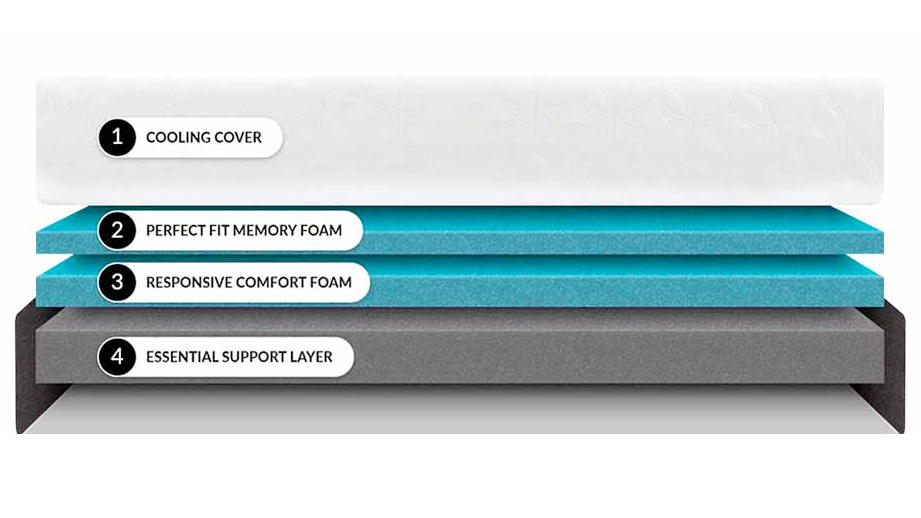
A memory foam mattress is any mattress made entirely from memory foam and other types of foam. This kind of mattress is set apart from the traditional mattress as it contains no springs or coils. Instead, it uses a combination of high density foams and memory foam for a balance of support and comfort.
The best memory foam mattresses usually use sturdy, supportive foam at the bottom of the mattress, while memory foam sits at the top for a body-contouring, pressure-relieving feel. As memory foam is prone to trapping heat, most memory foam beds will have cooling features, such as a breathable cover and gel-infused foams.
5 things I look for in a good memory foam mattress
1. A height of at least 10 inches
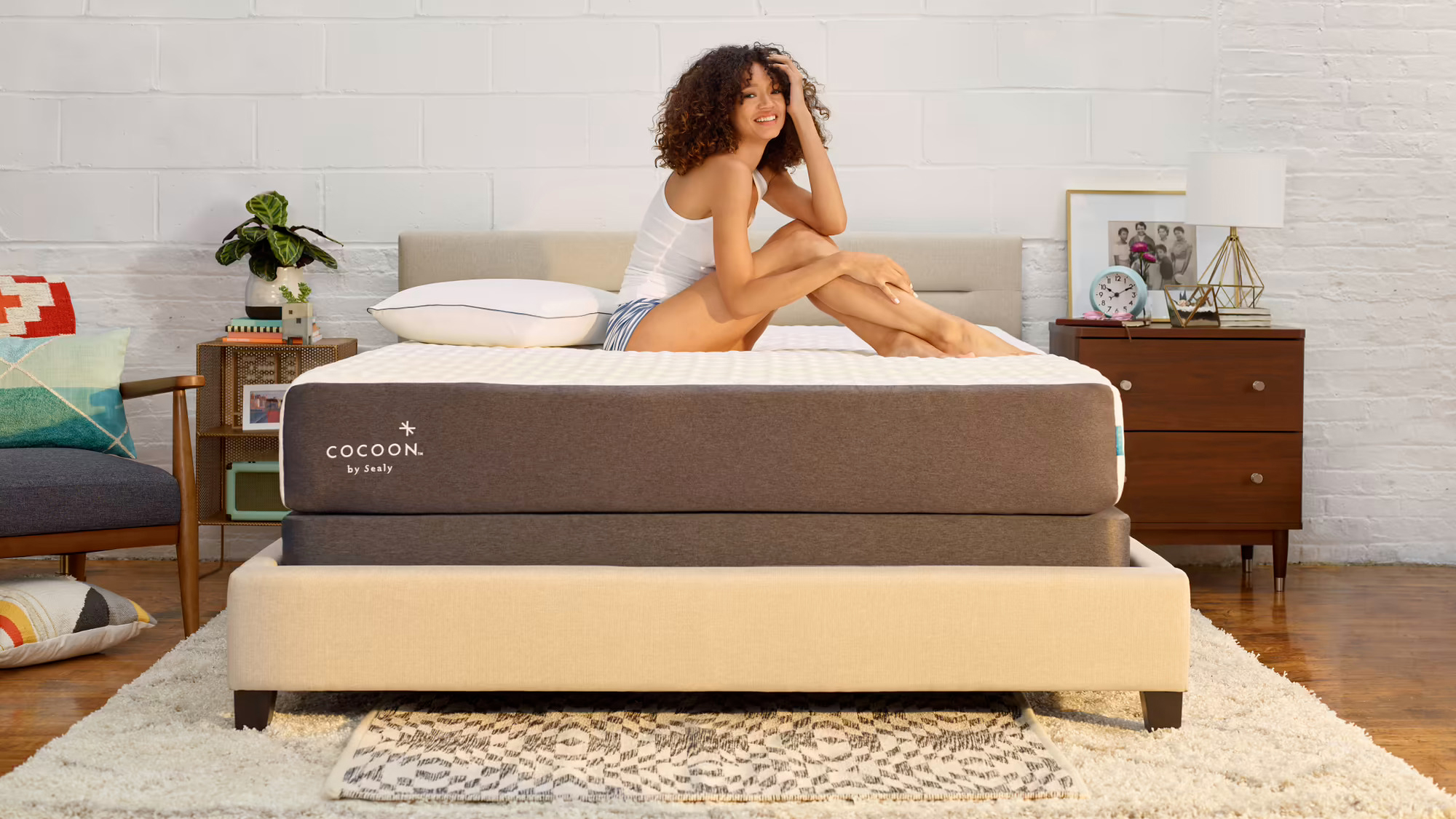
The first thing to keep in mind when hunting for an all-foam bed is how thick your mattress should be. As with any mattress, memory foam beds should be at least 10 inches tall. This height is enough to suit most adults and sleep styles. Any slimmer than 10 inches, and your mattress will only be suitable for those with mobility issues, young children, or temporary sleep arrangements such as guest rooms or foldaway beds.
In fact, lightweight sleepers (anyone who weighs under 130lbs) and heavyweight sleepers (anyone who weighs over 230lbs) should look for a tall mattress (around 12 to 14 inches). Why? Because the thicker the mattress, the more pressure relief and support it provides.
2. Cooling features
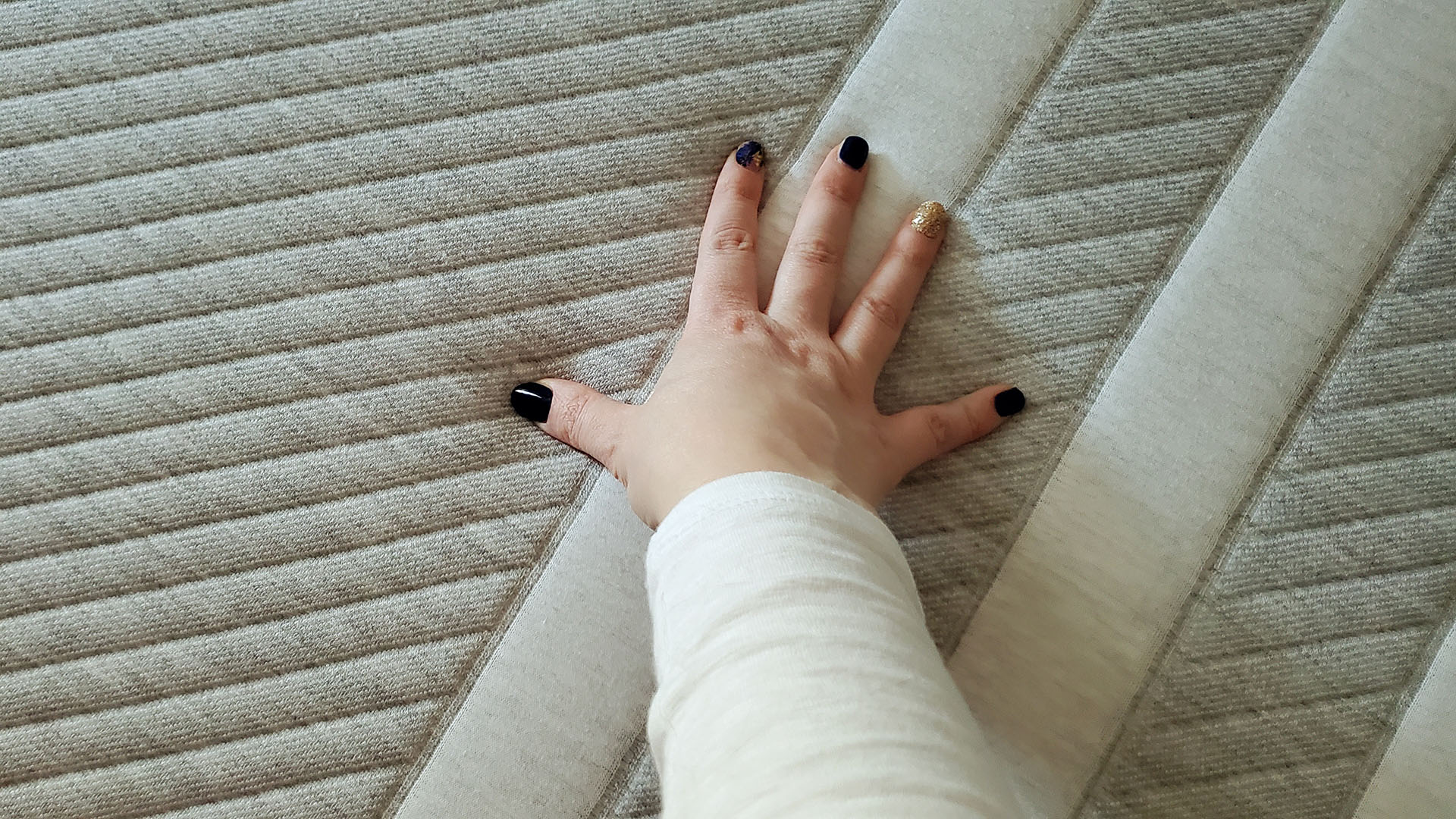
While memory foam delivers excellent pressure relief, comfort, and motion isolation, it does have one flaw: it traps heat. This is particularly bad news for hot sleepers or those who live in a warm climate.
However, a lot of all-foam beds are equipped with temperature-regulating features to offset the foam's heat-trapping tendencies. This includes a cooling cover either made from breathable materials such as organic cotton or wool, or material designed to dissipate heat such as Phase Change Material or the trademark GlacioTex. In fact, there are plenty of memory foam beds in our best cooling mattress guide.
3. A CertiPUR-US certification

Let's be clear, the CertiPUR-US certification is not some fancy credential only awarded to the best luxury mattress. Pretty much every bed on the market, including the best cheap mattresses, should have this certification by now.
Through rigorous testing, the certification basically verifies that a mattress meets certain environmental and safety standards by checking that the foam used is made without ozone depleters, heavy metals, certain flame retardants, and formaldehyde.
4. A medium-firm rating
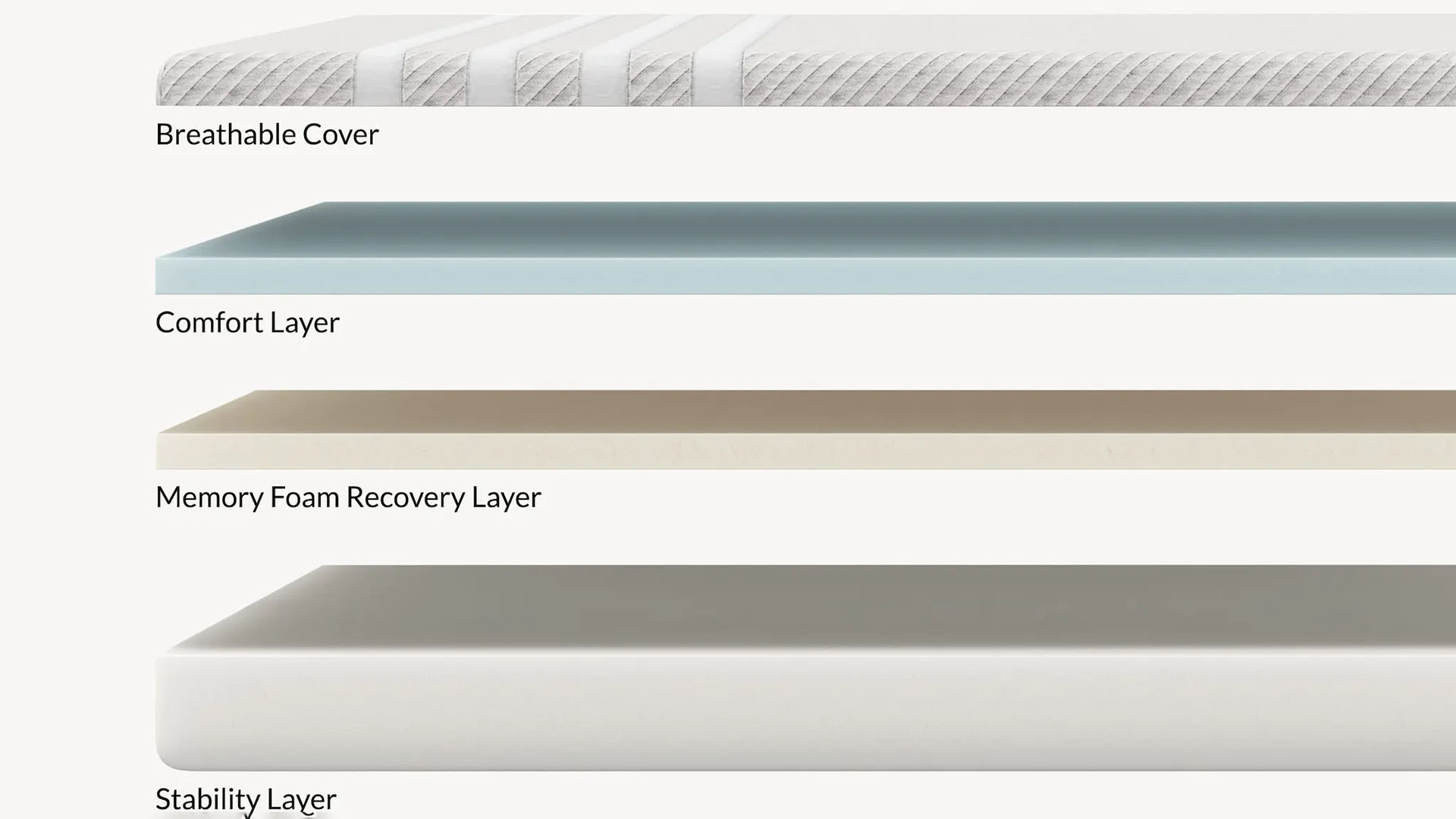
The majority of the best memory foam mattress (and mattresses in general) come with a medium firm rating. A medium-firm rating is a crowd-pleasing feel as it supports most sleep positions, including side sleepers, back sleepers, and stomach sleepers.
While some sleepers may prefer something firmer (most of the best mattresses for stomach sleepers and best mattress for heavy people have a firm rating), its unlikely you'll go wrong with a medium firm feel if you're unsure what firmness you need.
5. A sleep trial of at least 100 nights
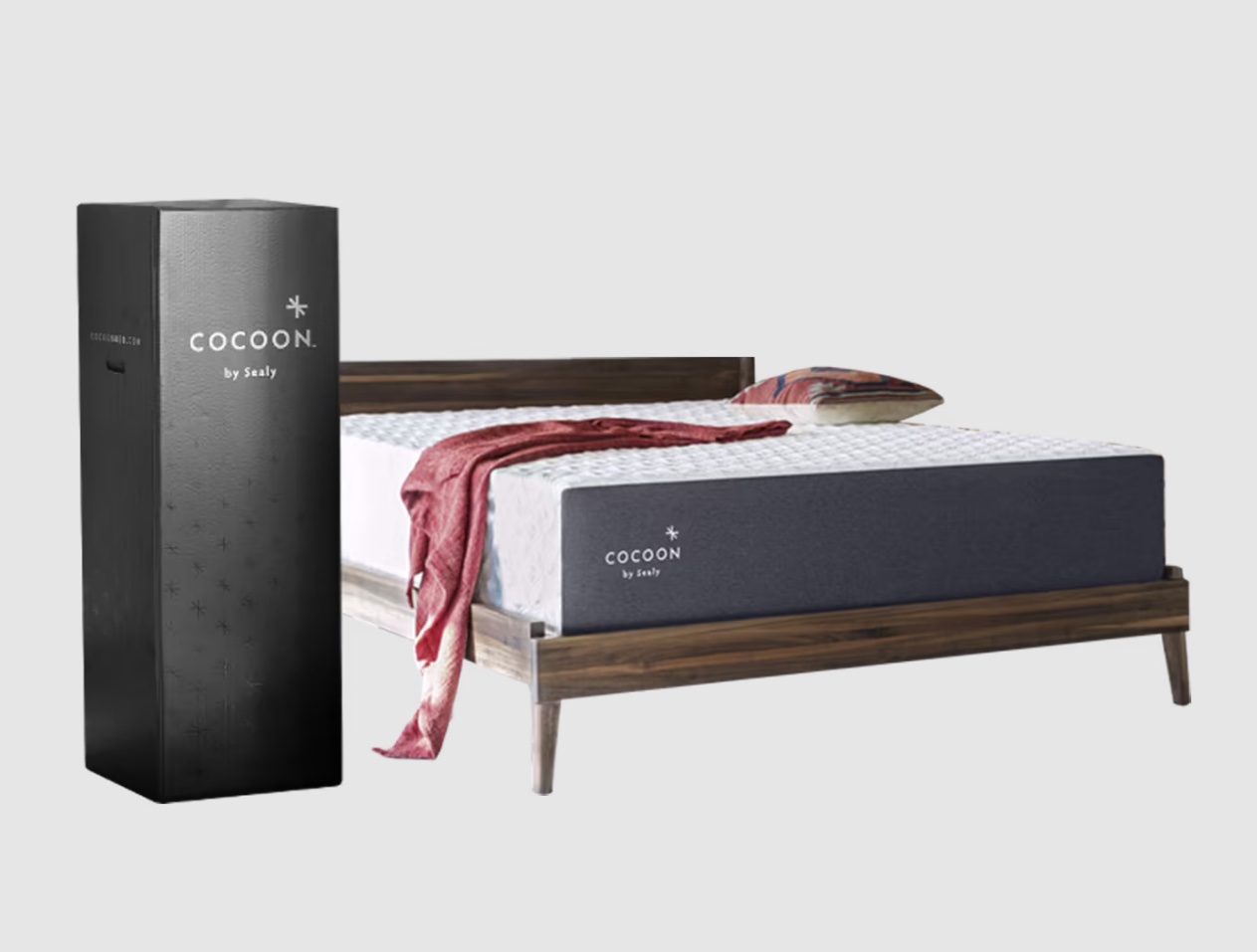
The final thing to look out for: mattress trials. Sleep trials allow you to test out the mattress after you buy, so you can return it within an allotted time frame if you find it isn't right for you. Mattress trials can vary in length; some trials last a whole year while others only last a month - sometimes mattresses don't come with a trial at all.
When looking for a memory foam mattress, look for how many nights the brand allows you to try it for - a 100-night trial is the average and gives you just over three months to try it out. Anything lower than this and it may feel you're being rushed to adjust to the mattress. Also, be careful when buying a mattress from Amazon, Walmart, or Costco, as they don't usually offer night trials with their mattresses.







